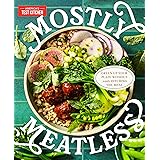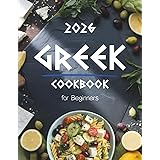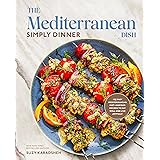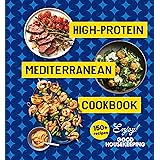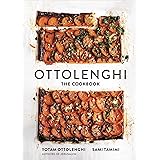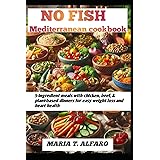Recognized globally as one of the healthiest eating patterns, the Mediterranean diet has been rated by U.S. News and World Report as the healthiest diet in the world for an impressive five consecutive years. This remarkable endorsement highlights its profound impact on health and longevity. However, many people find themselves asking, “What exactly do I eat on this diet?”
The video above addresses this common query directly by offering a practical 7-day Mediterranean diet meal plan. To complement that visual guide, this article provides an even deeper dive into the foundational principles, specific meal ideas, and invaluable insights to help you seamlessly integrate this vibrant way of eating into your daily life. Prepare to transform your approach to food, embracing flavors and traditions that have sustained well-being for centuries.
1. The Transformative Power of the Mediterranean Diet
Beyond its acclaimed status, the Mediterranean diet is celebrated for a multitude of health benefits that extend far beyond simple weight management. This eating pattern is consistently linked to reducing the risk of numerous chronic diseases, making it a cornerstone of preventive health.
Holistic Health Benefits Explored
The protective effects of this diet are wide-ranging. Scientific studies have shown its efficacy in combating significant health challenges such as:
- Heart disease and stroke
- Certain types of cancer
- Type 2 diabetes
- Hypertension (high blood pressure)
- Alzheimer’s disease and dementia
- Depression and anxiety
- Asthma and COPD
- Liver disease
- Sleep apnea
Imagine if your daily meals could actively contribute to not just feeling good now, but also safeguarding your long-term health. The Mediterranean diet offers precisely that potential, supporting everything from cognitive function to inflammatory responses.
2. Unpacking the Core Principles of the Mediterranean Diet
The essence of the Mediterranean diet isn’t about rigid calorie counting or restrictive food groups; rather, it’s about a lifestyle centered on whole, unprocessed foods and communal enjoyment. It draws inspiration from the traditional cuisines of countries bordering the Mediterranean Sea, where fresh, seasonal ingredients are paramount.
Prioritizing Whole, Unprocessed Foods
Firstly, a cornerstone of this diet is the emphasis on unprocessed, whole foods. Unlike the modern Western diet often characterized by highly refined items, Mediterranean eating prioritizes ingredients in their natural state. This means more fresh produce, legumes, nuts, seeds, and healthy fats, directly contributing to superior nutritional intake.
An Abundance of Fruits and Vegetables
Secondly, fruits and vegetables are consumed in staggering quantities. While the average American typically consumes around 2.5 servings of fruits and vegetables daily, individuals following a traditional Mediterranean diet often enjoy an impressive 9 to 15 servings. Imagine if every meal was brimming with colorful produce, significantly boosting your fiber, vitamin, and antioxidant intake.
Plant-Based Proteins as a Staple
Moreover, the main protein sources in the Mediterranean diet predominantly come from plant-based options like beans, lentils, nuts, and seeds. While meat and poultry are consumed, they are typically enjoyed in smaller portions and less frequently, often taking a supporting role rather than being the centerpiece of every meal. This shift towards legumes and nuts offers a robust profile of fiber and complex carbohydrates alongside protein.
Embracing Healthy Fats, Especially Olive Oil
The Mediterranean diet is notably a high-fat diet, but crucially, it focuses on healthy, mono-unsaturated fats. Extra virgin olive oil (EVOO) is the star, used generously in cooking, dressings, and even as a finishing oil. Anecdotally, some of the healthiest centenarians on the Greek island of Crete were observed consuming significant amounts of olive oil daily. This rich source of polyphenols and antioxidants contributes significantly to the diet’s health benefits, particularly for heart health.
The Importance of Omega-3 Fatty Acids
Lastly, the diet champions foods rich in Omega-3 fatty acids. These essential fats are vital for heart health and reducing inflammation throughout the body. Fatty fish like salmon, along with nuts, seeds (such as flaxseed), and green leafy vegetables, are excellent sources. Prioritizing these foods ensures a balanced intake of crucial nutrients often lacking in other diets.
3. Dispelling Common Mediterranean Diet Misconceptions
Newcomers to the Mediterranean diet often hold preconceived notions about certain foods. Let’s clarify some common myths to make your transition smoother and more enjoyable.
The Truth About Eggs
For decades, eggs were unfairly villainized due to concerns about cholesterol. However, modern science has largely debunked the myth that dietary cholesterol significantly impacts blood cholesterol levels for most healthy individuals. Eggs are a valuable source of high-quality protein and essential nutrients, perfectly acceptable in moderation within a Mediterranean eating pattern. Imagine starting your day with a nutritious shakshuka, eggs stewed in flavorful tomatoes and herbs, as outlined in the video’s meal plan.
Pasta: A Permissible Pleasure
Another frequent question revolves around pasta. Many assume it’s off-limits on a healthy diet, but the Mediterranean approach proves otherwise. Studies have even suggested that pasta, particularly when cooked al dente, can have a lower glycemic index than many breads and can be part of a healthy eating pattern, even aiding in weight management. The key is portion control and what accompanies it: small amounts of whole-grain pasta paired with abundant vegetables, lean proteins like tuna, and a healthy, olive oil-based sauce, as exemplified by Pasta Alla Puttanesca.
Meat in Moderation
While the Mediterranean diet emphasizes plant-based proteins, it does not exclude meat entirely. Chicken, for instance, can be enjoyed about once a week. The focus shifts from large, daily servings to smaller, less frequent portions, often integrated into dishes rather than being the sole highlight. Prioritizing high-quality, organic chicken ensures you’re consuming fewer antibiotics and hormones. Red meat is typically reserved for special occasions or very small quantities. Imagine a delicious Moroccan chicken stew with peppers and olives, a flavorful way to incorporate poultry thoughtfully.
4. Your Practical 7-Day Mediterranean Diet Meal Plan: A Deeper Look
The video provides an excellent overview of a week’s worth of meals. Here, we expand on each day, offering additional context, ingredient insights, and practical tips for your Mediterranean meal plan.
Day 1: A Flavorful Introduction
-
Breakfast: Shakshuka
This North African and Middle Eastern dish features eggs poached in a rich tomato sauce with spices. It’s an ideal start to the day, delivering protein, vegetables, and a burst of flavor. Consider adding a sprinkle of fresh parsley or cilantro for extra freshness. -
Lunch: Chop-Chop Salad
A Greek-inspired salad with finely chopped lettuce, feta, olives, peppers, and tomatoes, dressed with lemon and olive oil. This simple yet satisfying meal showcases the diet’s emphasis on fresh produce and healthy fats. It’s also incredibly versatile; add chickpeas or a handful of nuts for an extra protein boost. -
Dinner: Pasta Alla Puttanesca with Tuna
This quick and robust pasta dish combines capers, olives, tomatoes, and tuna. It beautifully illustrates how pasta can be part of a healthy diet when balanced with vegetables and lean protein. Opt for whole wheat pasta to increase fiber content, and remember to serve a moderate portion alongside a generous side salad.
Day 2: Embracing Legumes and Leftovers
-
Breakfast: Ful Medames
An Egyptian staple, this dish features slow-cooked fava beans, often seasoned with cumin, lemon juice, and olive oil. It’s a hearty, protein-rich breakfast that demonstrates the Mediterranean preference for legumes. Serve with a piece of crusty whole-grain bread or a side of sliced tomatoes and cucumbers. -
Lunch: Leftover Pasta Alla Puttanesca with Tuna and Broccoli
A clever strategy employed in Mediterranean households is enjoying leftovers. This not only saves time but also reduces food waste. Adding broccoli to yesterday’s pasta lunch ensures another serving of nutrient-dense vegetables. -
Dinner: White Bean Soup with Greek Salad
Hailing from Crete, this robust soup is rich in beans (a prime protein source) and often features a generous amount of extra virgin olive oil. When preparing, remember that authentic Mediterranean recipes often use more olive oil than many modern interpretations. Serve with a fresh Greek salad for a balanced, satisfying meal.
Day 3: Simple Pleasures and Quality Proteins
-
Breakfast: Pan Con Tomate
This simple Spanish breakfast involves pureed tomatoes, garlic, and olive oil spread over toasted bread. Its deceptive simplicity yields incredible flavor. For added protein, consider a slice of mozzarella or feta cheese. Imagine the vibrant flavors awakening your palate. -
Lunch: Leftover White Bean Soup with Greek Salad
Continuing the theme of smart meal preparation, reheating the delicious white bean soup and pairing it with a fresh Greek salad makes for an effortless and nutritious lunch. -
Dinner: Moroccan Chicken with Peppers, Lemons, and Olives
This flavorful dish exemplifies how chicken can be incorporated into the diet: as a weekly highlight. Prioritize organic chicken to ensure you’re consuming a higher quality, more ethically sourced product. The vibrant spices, tangy lemons, and briny olives create a truly memorable meal.
Day 4: Modern Twists and Smart Snacking
-
Breakfast: Blueberry Overnight Oats with Greek Yogurt
While perhaps not traditional, this breakfast incorporates classic Mediterranean ingredients. Greek yogurt is a powerhouse of protein and probiotics, beneficial for gut health. Prepare it the night before for a grab-and-go option. Imagine waking up to a delicious, prepared breakfast! -
Snack: Handful of Nuts or Fruit
If hunger strikes between meals, keep it simple and whole. A piece of fruit, a handful of nuts, some cheese, or hummus are excellent Mediterranean-approved snacks that provide sustained energy. -
Lunch: Leftover Moroccan Chicken with Peppers, Lemons, and Olives
Enjoy the delicious flavors of last night’s dinner once more. This consistent approach to leftovers minimizes cooking time during busy weekdays. -
Dinner: Sheet Pan Baked Eggplant Parmesan with a Simple Salad
This meal highlights a crucial aspect: you don’t need animal protein at every single meal. As long as your daily protein intake is sufficient, a vegetable-focused dinner like eggplant parmesan (with a moderate amount of melted cheese) can be incredibly satisfying. Augment your simple salad with nuts or seeds for an additional protein boost.
Day 5: Vegetables from Dawn to Dusk
-
Breakfast: Greek Omelet with Zucchini and Mint
Starting your day with vegetables is a hallmark of the Mediterranean diet. This omelet effortlessly incorporates zucchini, helping you reach that impressive 9-15 daily serving goal early. Pair with a side of fruit for a balanced start. -
Lunch: Leftover Sheet Pan Eggplant Parmesan with a Simple Salad
Another day, another delicious and easy leftover lunch. Pair with bread or crackers if desired, ensuring you’re fueling your body efficiently. -
Dinner: Greek Meatballs and Lemon Potatoes
For those who love “meat and potatoes,” this dish demonstrates how they fit into the Mediterranean framework. The difference lies in proportion: a smaller amount of lean meat (meatballs) is balanced with lemon-infused potatoes and a generous side of fresh vegetables or salad, making it a wholesome and hearty meal.
Day 6: Omega-3 Richness and Plant-Forward Feasts
-
Breakfast: Avocado Toast with Smoked Salmon, Dill, and Capers
This breakfast is a fantastic source of Omega-3s from the smoked salmon, vital for heart health and reducing inflammation. Avocado adds healthy monounsaturated fats. Consider choosing wild-caught salmon for superior nutritional quality. -
Lunch: Leftover Greek Meatballs, Lemon Potatoes, and Sautéed Greens
Enjoy the hearty flavors of the Greek meatballs and lemon potatoes, complemented by nutrient-rich sautéed greens. This substantial meal will keep you energized. -
Dinner: Baked Summer Vegetables (with optional whipped feta)
A truly plant-forward meal, this highlights the versatility and deliciousness of seasonal vegetables. If you desire additional protein or richness, add a dollop of whipped feta on the side or some slices of halloumi cheese. This illustrates that delicious, satisfying meals don’t always need a central meat component.
Day 7: Simplicity and Flexibility
-
Breakfast: Traditional Greek Breakfast
Keep it simple with feta cheese, whole-grain bread, olives, nuts, sliced tomatoes or cucumber, and a drizzle of olive oil. This minimalist approach emphasizes fresh ingredients and takes only minutes to prepare. -
Lunch: Leftover Baked Vegetables with Whipped Feta on Bread
Continue the theme of ease and enjoyment. Utilize any remaining baked vegetables from the previous night, paired with a simple side, for a nourishing lunch. -
Dinner: Leftovers Galore!
By the end of the week, you’ll likely have a variety of delicious leftovers. Day seven is the perfect opportunity to enjoy a mix-and-match meal, minimizing food waste and maximizing convenience. This flexible approach is a true hallmark of practical Mediterranean living.
5. Beyond the Plate: Embracing a Mediterranean Lifestyle
The Mediterranean diet is more than just a list of foods; it’s a comprehensive lifestyle choice that emphasizes mindfulness, communal eating, and physical activity. Integrating these elements can further enhance your journey.
Mindful Eating and Enjoyment
Firstly, take time to savor your meals. The Mediterranean culture often views eating as a social event, a moment to connect with family and friends. Eating slowly and mindfully not only enhances enjoyment but also aids digestion and helps you recognize satiety cues.
The Importance of Quality Ingredients
Secondly, pay attention to the quality of your ingredients. Opt for seasonal, locally sourced produce whenever possible. Choose organic chicken and eggs to avoid unnecessary additives. The difference in flavor and nutritional value is often palpable.
Stay Hydrated and Consider Wine in Moderation
Staying well-hydrated with water is always crucial. While red wine is sometimes associated with the Mediterranean diet, it’s consumed in moderation and typically with meals. If you don’t drink alcohol, there’s no need to start, as the health benefits of the diet are primarily driven by food choices.
Physical Activity as a Companion
Lastly, physical activity is an integral part of the Mediterranean lifestyle. It doesn’t mean intense gym sessions, but rather incorporating movement into daily life—walking, gardening, or engaging in other enjoyable activities. This holistic approach significantly contributes to overall well-being and is a natural partner to your Mediterranean meal plan.



